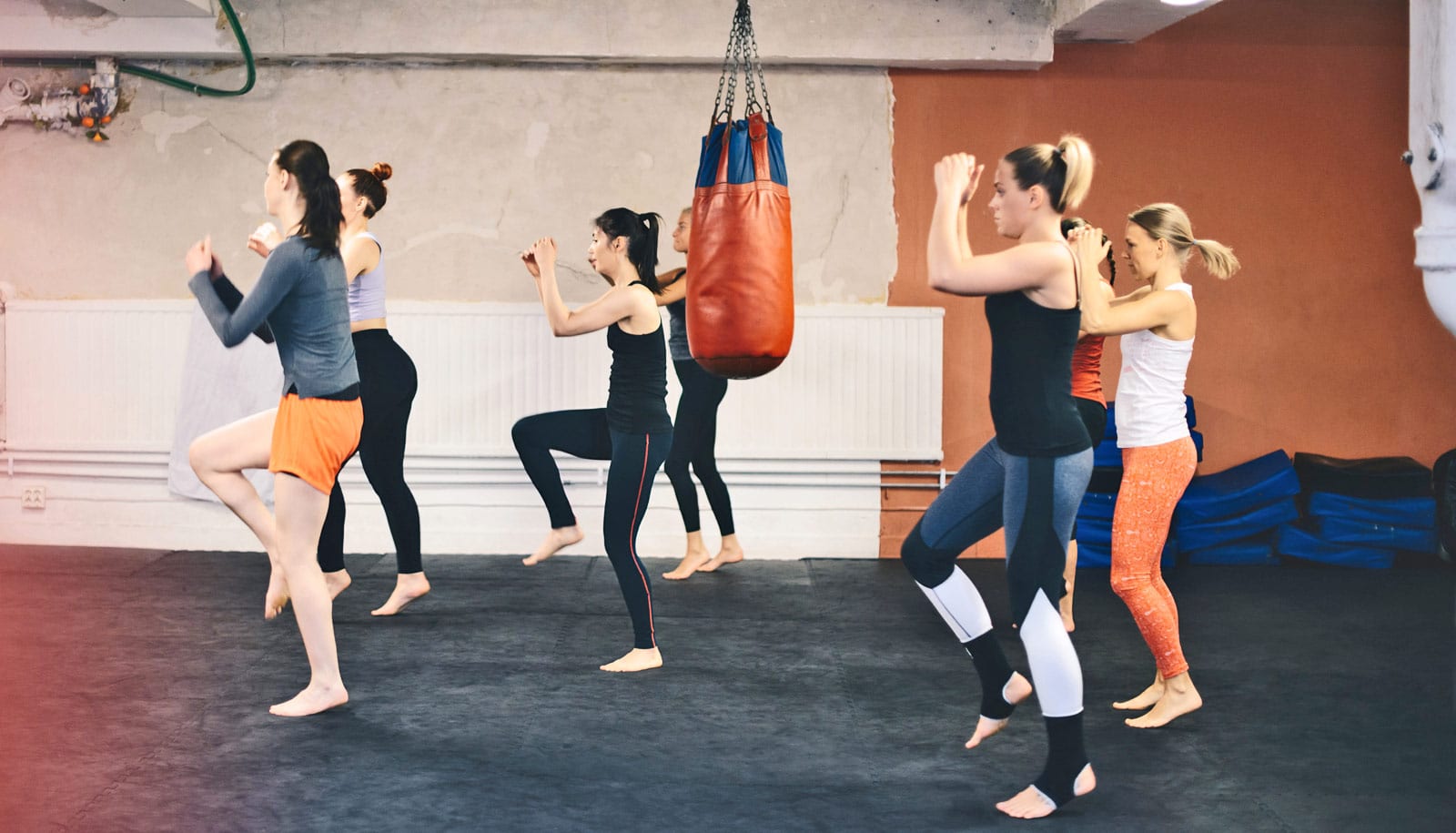Fitness instructors should make motivational comments about strength and health, not weight loss and appearance, research suggests.
Some types of exercise seem to improve body esteem in women, whereas others have the potential to lower it. In other words, from a psychological perspective, not all fitness approaches are created equal.
“Our goal was to determine whether the psychological outcomes of a fitness class might vary based on whether the instructor made motivational comments based on health verses appearance,” says Renee Engeln, lead author of the study and professor of instruction in psychology at Northwestern University.
“If we want people to stick with exercise, we need to remove shame from the equation.”
After taking a 16-minute conditioning class, women reported more positive emotions and felt more satisfied with the shape of their body if the instructor said things like, “This exercise is crucial to developing strength in the legs; these are the muscles that truly help you run, jump, sprint like a super hero!” Those randomly assigned to the class in which the instructor made appearance-focused comments like, “This exercise blasts fat in the legs, no more thunder thighs for us! Get rid of that cellulite!” didn’t show those same improvements.
“We also asked the women to list three words that described how they felt at the end of class,” says Engeln, author of Beauty Sick (HarperCollins, 2017). “Those who heard appearance-focused comments were much more likely to write things like ‘ashamed’ and ‘disgusted with myself.’ Those in the health-focused classes were more likely to write things like ‘accomplished’ and ‘strong.'”
Engeln says the study is one more reminder that words really matter.
“The women in this study all did the same exercises, in the same room, with the same music playing,” Engeln adds. “Yet just modifying the script the fitness instructor used had a meaningful impact on the way they felt about themselves afterward.
“If we want people to stick with exercise, we need to remove shame from the equation. This study points to an easy and cost-free step that fitness instructors can take to make their classrooms healthier, more inclusive, and more inspiring.”
The work appears in the Journal of Clinical Sport Psychology. Coauthors are from Vanderbilt University and Northwestern.
Source: Northwestern University


